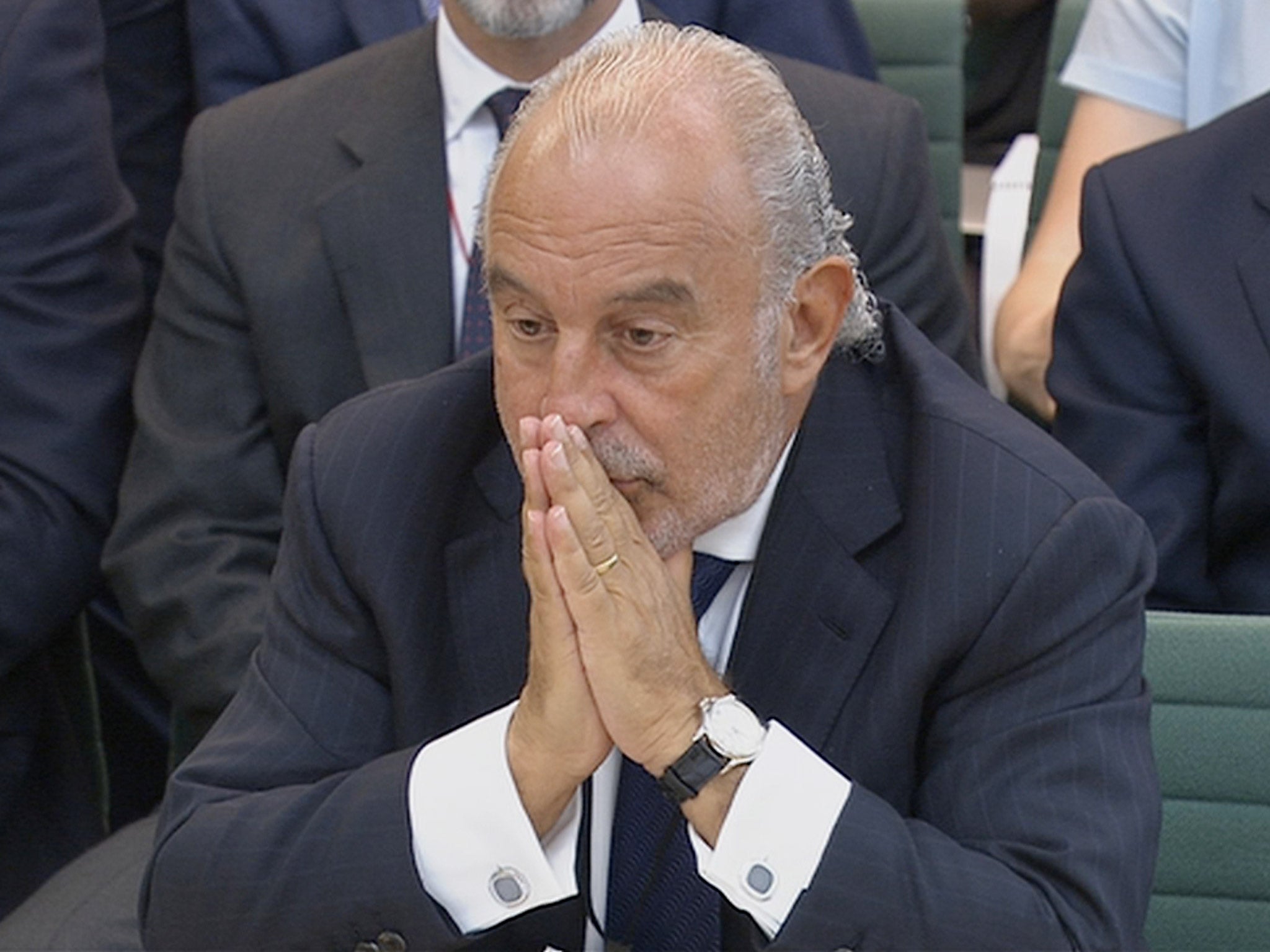Sir Philip Green suffers profit tumble. Now, who's going to get Top Shop back on track?
The numbers weren't as bad as the 79 per cent fall in headline earnings might suggest, but like most retailers, the brands owned by the Green family's Taveta face big challenges

Your support helps us to tell the story
From reproductive rights to climate change to Big Tech, The Independent is on the ground when the story is developing. Whether it's investigating the financials of Elon Musk's pro-Trump PAC or producing our latest documentary, 'The A Word', which shines a light on the American women fighting for reproductive rights, we know how important it is to parse out the facts from the messaging.
At such a critical moment in US history, we need reporters on the ground. Your donation allows us to keep sending journalists to speak to both sides of the story.
The Independent is trusted by Americans across the entire political spectrum. And unlike many other quality news outlets, we choose not to lock Americans out of our reporting and analysis with paywalls. We believe quality journalism should be available to everyone, paid for by those who can afford it.
Your support makes all the difference.I imagine there will have been some schadenfreude at the expense of Sir Philip Green after it emerged that profits at his Top Shop empire fell by 79 per cent for the year to the end of August 2016.
The billionaire retailer became a business bogeyman after he sold the failing BHS to a former bankrupt with no retail experience and watched from afar as the thing collapsed leaving its pension scheme members swinging in the wind.
Although he did eventually pump a bunch of money into the scheme to prop it up, and keep it going, members benefits will still be reduced, and the deal was only completed after a massive fuss (and amid the threat of enforcement action by The Pensions Regulator).
Unfortunately for his critics, while Top Shop is finding life tough, it isn’t quite as bad as all that. There are some big one-off costs in the numbers, and operating profits (stripping those out) only fell by 16 per cent while sales fell by 2.5 per cent.
So, bad but not dreadful, and his remaining employees can take some reassurance from that. They aren’t going to be in the same position as their former BHS colleagues anytime soon. In fact, I’d imagine quite a few retailers would see the numbers, released by Taveta, the holding company for Top Shop and the other Green brands, as a half way respectable result.
However, while that might be the case, Sir Philip won't want them to stay as bad as they are for too long. No business would.
So what to do? Taveta says it is looking at steps to improve margins. That’s anything but easy right now.
You can try what Next has said it’s going to try and increase your prices. The trouble is, and Taveta makes note of this fact, clothing is becoming a less important part of household budgets. So you do that at your peril.
Squeezing the staff I mentioned is risky. If you fire people, you could damage the service your business provides. And the people who stick around might find it hard to smile at your customers.
Cutting their pay isn’t really an option either, and not just because it would be a very bad look for a man like Sir Philip.
Thanks to a nonsensical immigration policy, Britain is already starting to suffer from labour shortages and large numbers of people in retail are on either the minimum wage, or something close to it. Whoever forms the next Government has pledged that the minimum wage will go on rising.
You could try what Primark is doing. It says it will keep its already very competitive prices down and improve its bottom line by growing fast. But Primark is an unusual business.
If you’re not in the position to grow like Japanese knotweed by opening lots of new stores, the only other option you have is to be clever. You need to find ways of reducing costs by looking at your supply chain, taking steps to improve efficiency, optimising how the staff you have are deployed, and hoping that your businesses can find some good designs to tempt the customers in.
Squeezing more profit out of a business like that requires someone sharp in operational control of it, which makes finding the right replacement for the outgoing Mary Homer all the more important to Sir Philip, who is currently on the hunt. Whoever gets the job is going to have to put up with him breathing down their neck. New yachts don't pay for themselves, after all.
Subscribe to Independent Premium to bookmark this article
Want to bookmark your favourite articles and stories to read or reference later? Start your Independent Premium subscription today.
Join our commenting forum
Join thought-provoking conversations, follow other Independent readers and see their replies
Comments